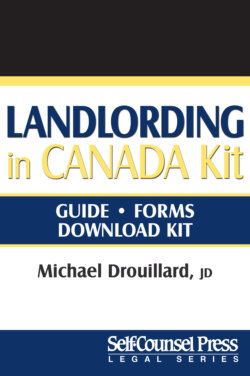Читать книгу Landlording in Canada - Michael Drouillard - Страница 36
На сайте Литреса книга снята с продажи.
Privacy Law
ОглавлениеThis is different from legislation designed to protect personal information and is a relatively new frontier in Canadian law. Landlords cannot breach the privacy of their tenants.
Generally speaking, the act must be quite significant for it to be considered a breach of privacy. For example, secretly installing a camera inside a tenant’s suite without permission definitely qualifies as a significant breach of privacy. However, installing a camera in an area that only monitors a common area, such as an apartment lobby, is far less likely to be considered a breach of privacy. This is because there is less of a reasonable expectation of privacy in an apartment lobby than there is in a tenant’s personal residence.
On the other hand, installing a camera in a common area that focuses upon a particular tenant’s suite might be considered a breach of that tenant’s privacy. Unfortunately, whether a tenant’s privacy was breached is contextual and it depends on the facts of a given case. It is difficult to say exactly when a landlord has done something that has breached a tenant’s right to privacy.
A good rule of thumb is to never enter the tenant’s suite without express consent or only if the tenancy law of your province provides that you are permitted to enter the tenant’s home at that time. Do not monitor your tenant’s activities in an excessive manner. In most cases, all that you need to know about your tenant can be gained from periodic inspections of the property that you perform after getting the tenant’s consent or by giving notice of your intention to inspect the suite as permitted by the tenancy law of your province.
